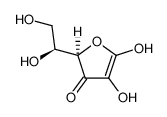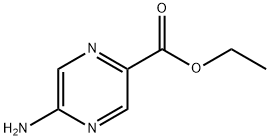From the perspective of absorption, if Vitamin C can significantly assist in iron absorption, what is the underlying mechanism? Does the form of Vitamin C matter? For example, is natural - sourced Vitamin C from fruits more effective than synthetic supplements? Also, how does the presence of other substances in our diet interact with this process? Do certain foods inhibit the enhancing effect of Vitamin C on iron absorption? And in terms of different populations, such as children, pregnant women, or the elderly, does Vitamin C's impact on iron absorption vary?
From the perspective of absorption , can Vitamin C significantly assist in the absorption of iron
Related Encyclopedia
Related Products More >
-
- CNY Request For Quotation
-
- CNY Request For Quotation
-
- CNY Request For Quotation
-
- 86404-04-8
- CNY Request For Quotation
-
- 86404-04-8
- CNY Request For Quotation
-
- 68186-88-9
- CNY Request For Quotation
-
- 68186-88-9
- CNY Request For Quotation
-
- 68186-88-9
- CNY Request For Quotation





 沪ICP备2021018848号-5
沪ICP备2021018848号-5

Now, does the form of vitamin C matter? It's a good question. Natural - sourced vitamin C from fruits like oranges, strawberries, or kiwis has some perks. Along with vitamin C, these fruits come with other things like fiber and various plant compounds. These extras might work together with vitamin C in a way that could potentially enhance iron absorption even more. But that doesn't mean synthetic supplements are bad. Synthetic vitamin C is made to be pure and concentrated. Some people might find it more convenient, especially if they can't get enough fruits in their diet. In terms of just the vitamin C's ability to help iron absorption, there isn't a huge difference between natural and synthetic. But the overall package of nutrients in natural sources might give it a slight edge.
What about other substances in our diet? Oh, they can really mess with this process. For example, foods high in calcium, like dairy products, can sometimes interfere with iron absorption. They can bind to iron and make it harder for our body to take it in, even if there's vitamin C around. On the flip side, some foods can actually help. Red meat, for instance, has heme - iron, which is really easy for our body to absorb. And when you pair that with a bit of vitamin C - rich food, like a tomato salad with your steak, it can be a great combo for getting more iron into your system.
And different populations? Absolutely, it can vary. Kids, for example, are still growing, and their bodies might respond a bit differently. Their iron needs are high for building strong bodies, and vitamin C can be really important for making sure they absorb enough iron from their food. Pregnant women also have increased iron needs to support the growing baby. Vitamin C can help them get the most out of their iron intake. As for the elderly, their digestive systems might not be as efficient. So, the help from vitamin C in iron absorption could be crucial. But they might also need to be careful about other factors like medications they're taking, which could also affect how well iron is absorbed, even with the help of vitamin C.
Now, does it matter if it's natural or synthetic Vitamin C? Not really. Whether it's from oranges or a supplement pill, your body sees it the same way. It's the chemical structure that counts, and both forms have that going for them.
But here's the kicker: what you eat alongside your iron and Vitamin C can mess with this whole process. For instance, stuff like calcium, tannins in tea, or phytates in whole grains can step in and block the absorption party. So, if you're trying to up your iron intake, it's smart to space out your calcium-rich foods or that morning cup of tea from your iron-packed meals.
And let's talk about different folks. Kids, pregnant women, and the elderly might have varying needs or absorption rates. Kids and pregnant ladies often need more iron, so getting enough Vitamin C is crucial. The elderly might have a harder time absorbing nutrients in general, so Vitamin C can be a real boon for them too.
In short, Vitamin C is a great buddy for iron absorption, but it's all about timing and what else you're eating. Keep an eye on those dietary interactions, and you'll be golden!
When it comes to the form of Vitamin C, whether it's from natural sources like fruits or synthetic supplements, the basic function is the same in terms of enhancing iron absorption. However, natural - sourced Vitamin C often comes with other beneficial compounds found in fruits, such as fiber and various antioxidants. These additional substances might have a synergistic effect that could potentially make the overall absorption process a bit more efficient in a natural setting. But in terms of just the Vitamin C component, synthetic and natural forms are quite comparable in their ability to convert ferric iron to ferrous iron.
Other substances in our diet can interact with this process. For example, calcium, polyphenols (found in tea and coffee), and phytates (in whole grains and legumes) can inhibit the enhancing effect of Vitamin C on iron absorption. Calcium can bind to iron and reduce its absorption, while polyphenols and phytates can form complexes with iron that make it less available for absorption.
In different populations, Vitamin C's impact on iron absorption can vary. Children and pregnant women generally have higher iron requirements. For them, the combination of Vitamin C and iron - rich foods can be especially beneficial as it helps ensure they get enough iron for growth and development (in children) and for the growing fetus (in pregnant women). The elderly may have reduced stomach acid production, which can affect iron absorption. But adding Vitamin C can still help enhance the absorption of non - heme iron (the type of iron found in plant - based foods), although the overall efficiency might be somewhat lower compared to younger individuals due to other age - related factors. So, while Vitamin C is a great aid for iron absorption across different populations, individual needs and physiological differences need to be considered.